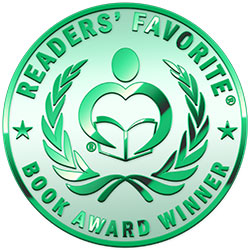
 This author participates in the Readers' Favorite Free Book Program, which is open to all readers and is completely free. The author will provide you with a free copy of their book in exchange for an honest review. You and the author will discuss what sites you will post your review to and what kind of copy of the book you would like to receive (eBook, PDF, Word, paperback, etc.). To begin, click the purple email icon to send this author a private email.
This author participates in the Readers' Favorite Free Book Program, which is open to all readers and is completely free. The author will provide you with a free copy of their book in exchange for an honest review. You and the author will discuss what sites you will post your review to and what kind of copy of the book you would like to receive (eBook, PDF, Word, paperback, etc.). To begin, click the purple email icon to send this author a private email.

Reviewed by Jon Michael Miller for Readers' Favorite
In The Meaning of Myth, Neel Burton (psychiatrist, philosopher, wine expert) brilliantly discusses and exhibits the meaning of myth. First, he defines it as “a piece of lore” and then separates it from legend, fable, fairytale, parable, religion, ritual, magic, and science. He presents a staggeringly exquisite progression: “Where science ends there is philosophy, where reason ends (end of language)—myth, music, wine.” Professor Burton’s voice in the piece is of an unselfconscious, thoroughly informed expert. The prose is fluid, professional, personal. He talks about the history of myth, and the tools used such as metaphor, personification, and allegory. And he explains the plot structure and content, its heroes/ heroines and gods/goddesses. He also talks about the history and current state of myth, implying enigmatically that sometime in the future myth might be all we have.
For quite some time I have been reading to be entertained, but I started this book to learn. I soon discovered that learning is super entertaining. I was reminded and inspired about the importance of story to mankind. And the necessity of knowing myth as it relates to human history and thought. After Dr. Burton tells us all we need to know about myth in general, he offers specific presentations on 12 major myths (with photographs of artwork), starting with Echo and Narcissus and ending with Plato’s Myth of Er. The stories are spellbinding by themselves, but then there is commentary by Professor Burton, wise, knowledgeable, and enthralled by his subject. I felt as if I’d rediscovered a fabulous world I’d long forgotten, and it’s a world that we must never forget. The Meaning of Myth by Neel Burton is teaching and writing at its most superb and is as entertaining as you could ever want.